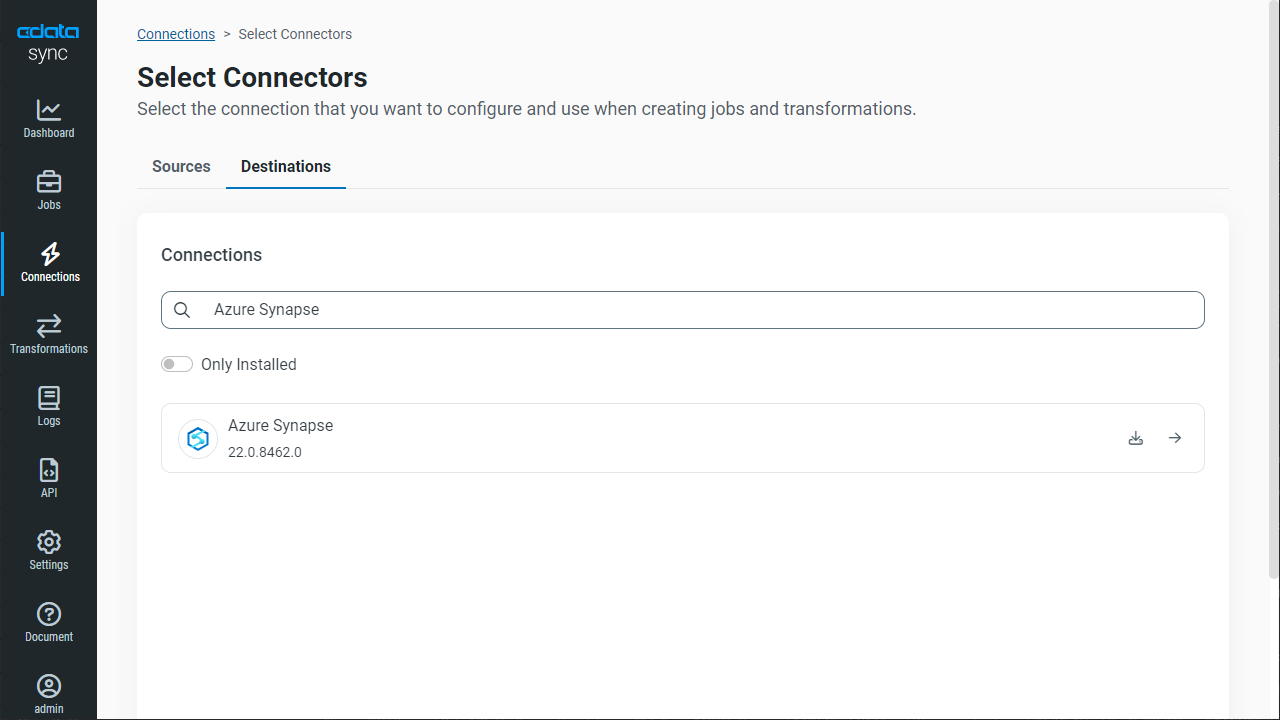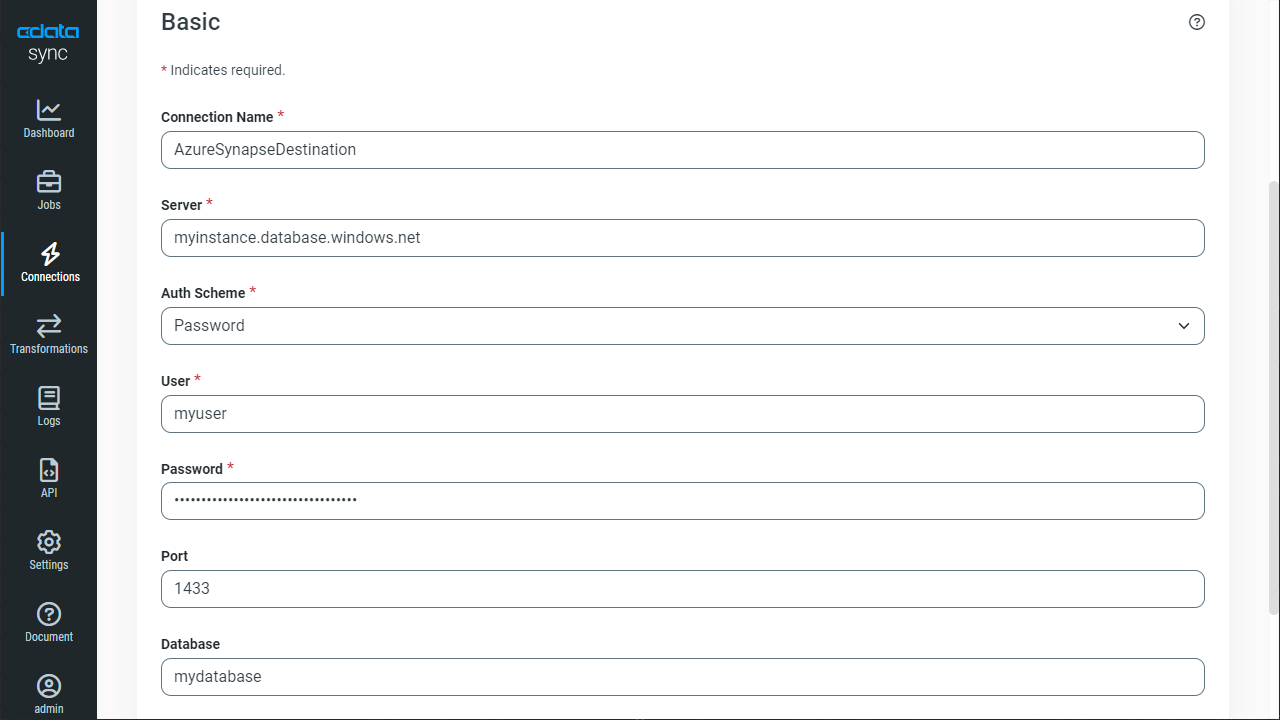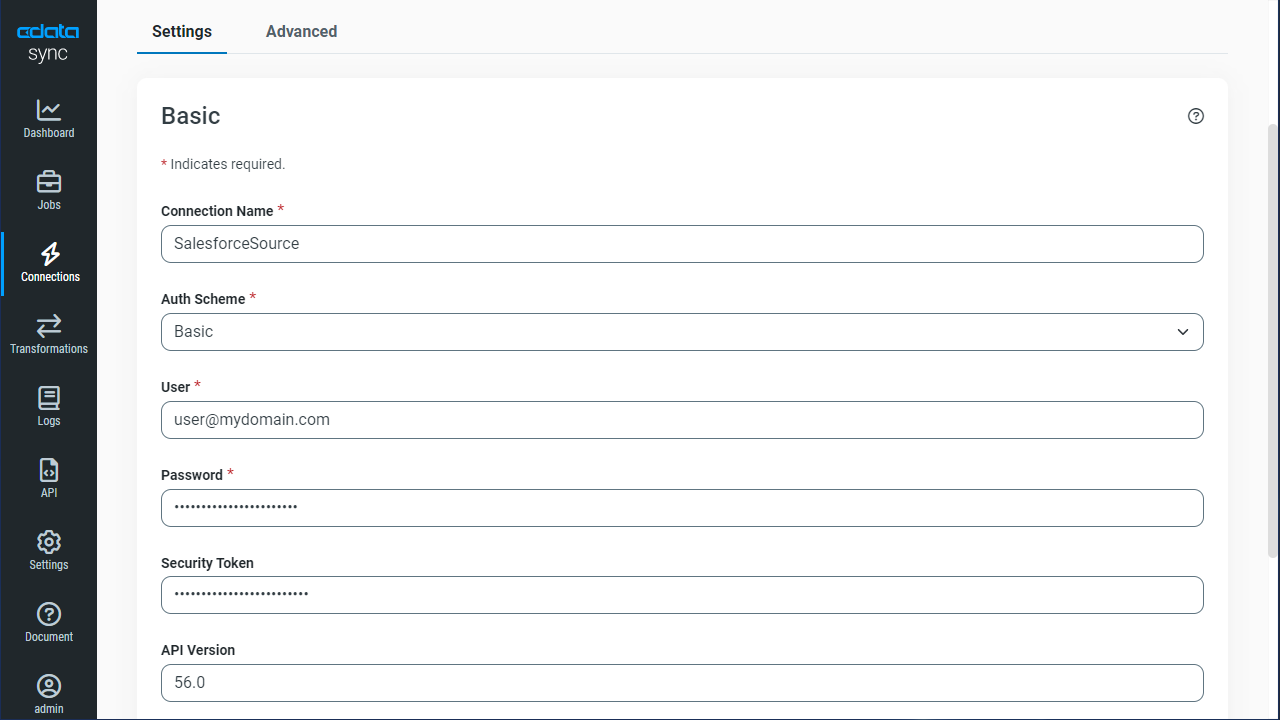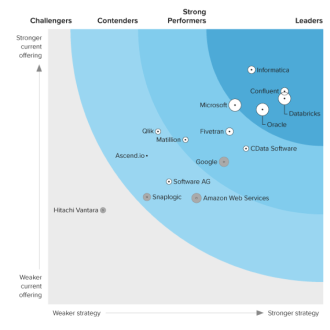Discover how a bimodal integration strategy can address the major data management challenges facing your organization today.
Get the Report →Automate BigCommerce Data Replication to Azure Synapse
Use CData Sync to customize and automate BigCommerce data replication to Azure Synapse.
Always-on applications rely on automatic failover capabilities and real-time data access. CData Sync integrates live BigCommerce data into your Azure Synapse instance, allowing you to consolidate all of your data into a single location for archiving, reporting, analytics, machine learning, artificial intelligence and more.
Configure Azure Synapse as a Replication Destination
Using CData Sync, you can replicate BigCommerce data to Azure Synapse. To add a replication destination, navigate to the Connections tab.
- Click Add Connection.
- Select Azure Synapse as a destination.
![Configure a Destination connection to Azure Synapse.]()
- Enter the necessary connection properties. To connect to Azure Synapse, provide authentication properties (see below) and set the following properties to connect to a Azure Synapse database:
- Server: The server running Azure. You can find this by logging into the Azure portal and navigating to Azure Synapse Analytics -> Select your database -> Overview -> Server name.
- Database: The name of the database, as seen in the Azure portal on the Azure Synapse Analytics page.
Using SQL Password Authentication
To authenticate to Microsoft SQL Server using standard authentication, set the following:
- User: The username provided for authentication with Azure.
- Password: The password associated with the authenticating user.
- Click Test Connection to ensure that the connection is configured properly.
![Configure a Destination connection.]()
- Click Save Changes.
Configure the BigCommerce Connection
You can configure a connection to BigCommerce from the Connections tab. To add a connection to your BigCommerce account, navigate to the Connections tab.
- Click Add Connection.
- Select a source (BigCommerce).
- Configure the connection properties.
BigCommerce authentication is based on the standard OAuth flow. To authenticate, you must initially create an app via the Big Commerce developer platform where you can obtain an OAuthClientId, OAuthClientSecret, and CallbackURL. These three parameters will be set as connection properties to your driver.
Additionally, in order to connect to your BigCommerce Store, you will need your StoreId. To find your Store Id please follow these steps:
- Log in to your BigCommerce account.
- From the Home Page, select Advanced Settings > API Accounts.
- Click Create API Account.
- A text box named API Path will appear on your screen.
- Inside you can see a URL of the following structure: https://api.bigcommerce.com/stores/{Store Id}/v3.
- As demonstrated above, your Store Id will be between the 'stores/' and '/v3' path paramters.
- Once you have retrieved your Store Id you can either click Cancel or proceed in creating an API Account in case you do not have one already.
![Configure a Source connection (Salesforce is shown).]()
- Click Connect to ensure that the connection is configured properly.
- Click Save Changes.
Configure Replication Queries
CData Sync enables you to control replication with a point-and-click interface and with SQL queries. For each replication you wish to configure, navigate to the Jobs tab and click Add Job. Select the Source and Destination for your replication.
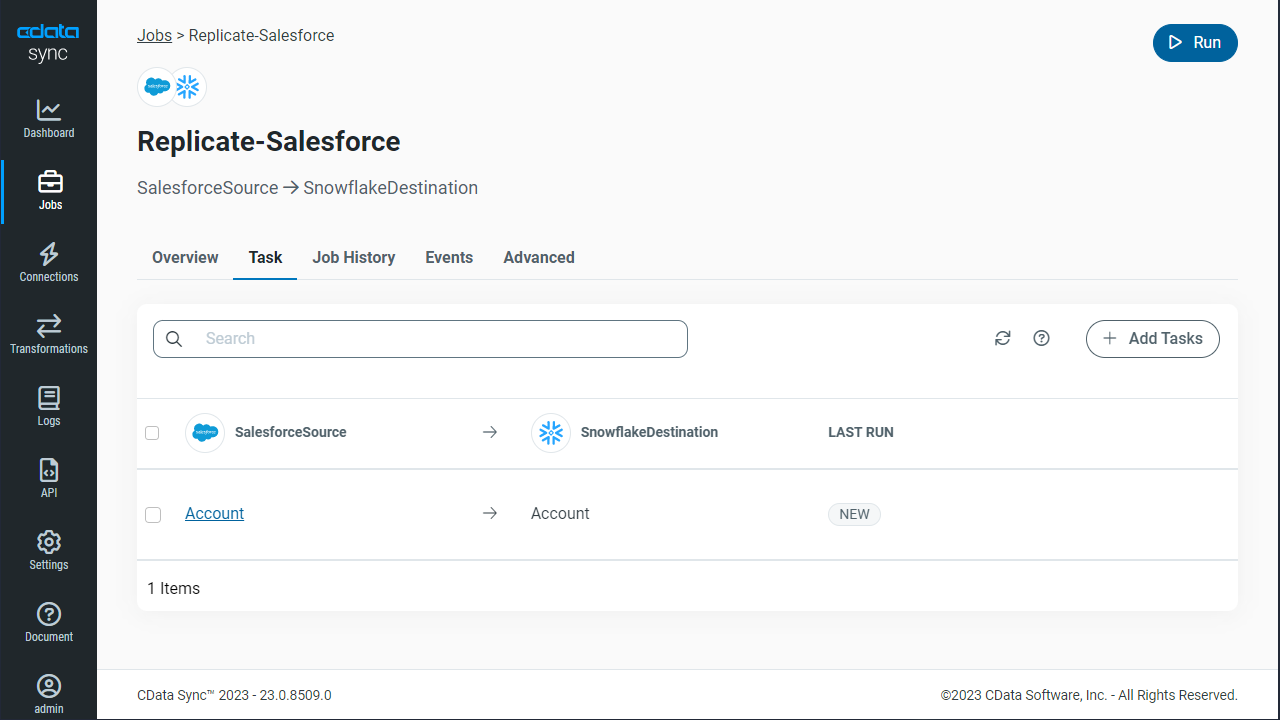
Replicate Entire Tables
To replicate an entire table, click Add Tables in the Tables section, choose the table(s) you wish to replicate, and click Add Selected Tables.
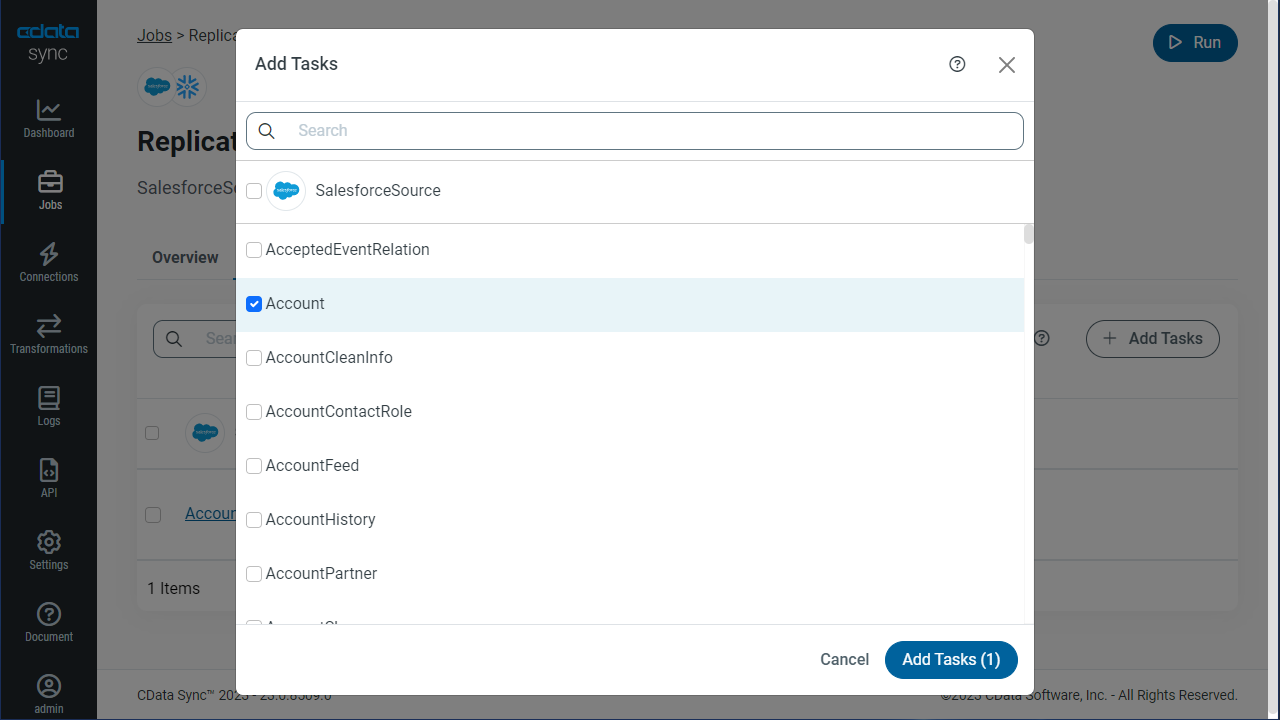
Customize Your Replication
You can use the Columns and Query tabs of a task to customize your replication. The Columns tab allows you to specify which columns to replicate, rename the columns at the destination, and even perform operations on the source data before replicating. The Query tab allows you to add filters, grouping, and sorting to the replication.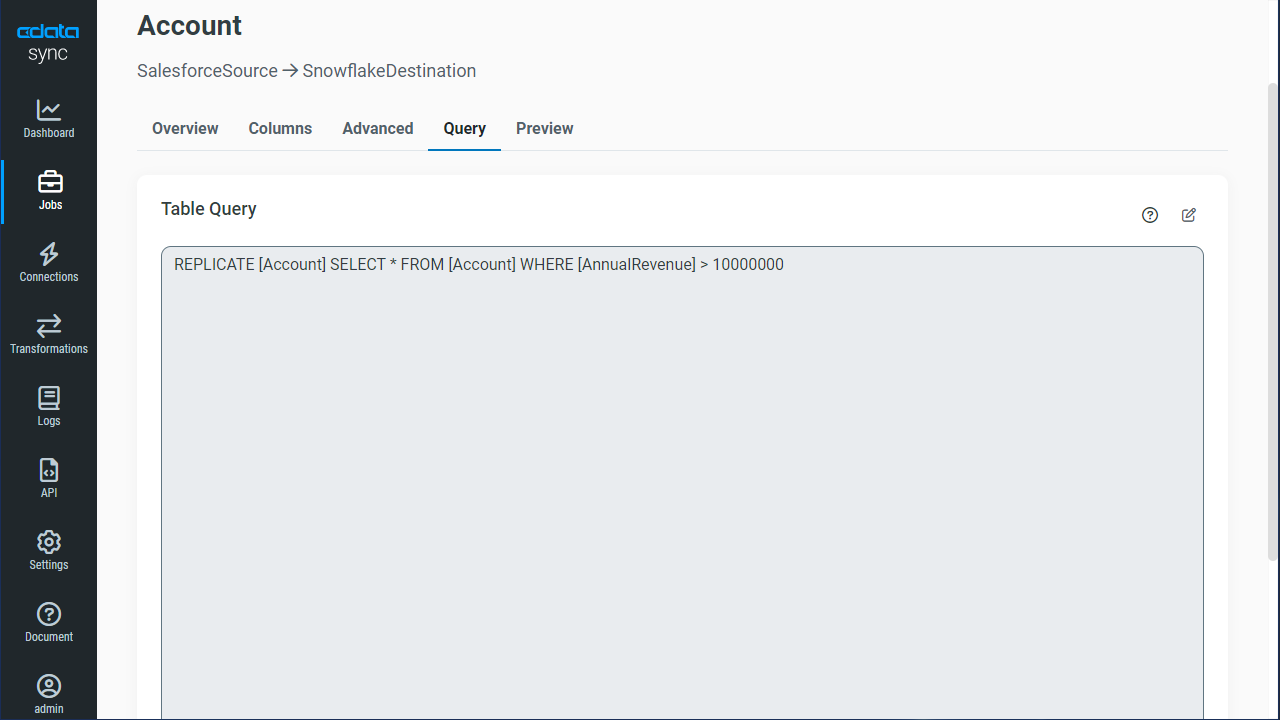
Schedule Your Replication
In the Schedule section, you can schedule a job to run automatically, configuring the job to run after specified intervals ranging from once every 10 minutes to once every month.
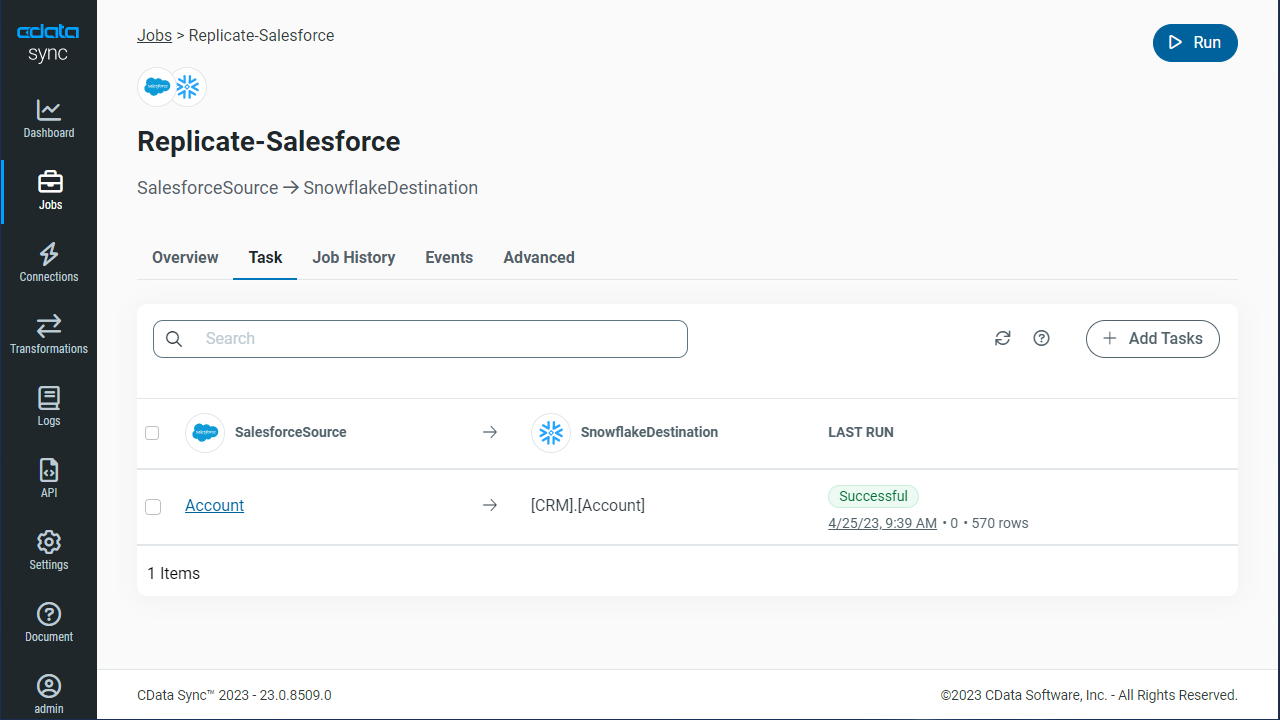
Once you have configured the replication job, click Save Changes. You can configure any number of jobs to manage the replication of your BigCommerce data to PostgreSQL.






